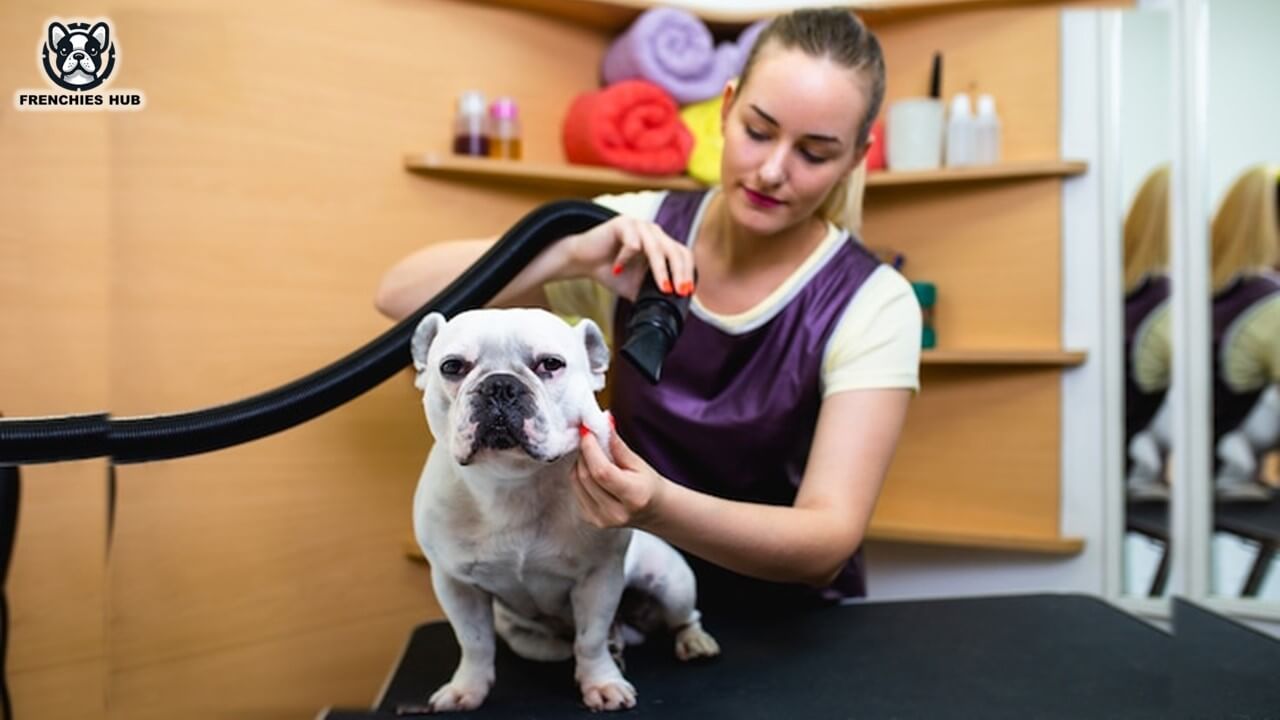Owning a French Bulldog means embracing every aspect of their presence in your house or apartment, including dealing with unwanted hair on your floor and furniture. While shedding is a common trait among many pets, French Bulldogs have a unique pattern that surprises many owners. Despite their short, smooth coat, these adorable pets do shed, but with the right knowledge and tools, keeping it at a minimum level is entirely possible. This characteristic makes them ideal apartment dogs, beloved for their low-maintenance nature and compatibility with indoor living.
The misconception that Frenchies don’t shed much due to their short hair often leads to surprise among new pet owners. However, like many dogs, they shed year-long, with an increase observed during the warmer months. Thankfully, their shedding can be effectively managed, ensuring that your home remains clean and comfortable. Their popularity as apartment dogs doesn’t wane, thanks to their affable nature and the straightforward methods available to keep their shedding under control.
Deep Dive into French Bulldog Shedding Explained
French Bulldogs, cherished by dog lovers globally for their endearing personalities and distinctive looks, indeed share a common characteristic with all dogs: the inevitability of shedding. This natural process is crucial for the renewal of their coat, facilitating the removal of damaged or old hair to maintain their health and appearance. Understanding the factors that influence their shedding patterns is essential for any Frenchie owner.
Genetics: The Underlying Factor
The genetics of a French Bulldog are a primary determinant in their shedding tendencies. These genetic blueprints lay out the specifics of their coat, which can vary from short, smooth textures to those that are longer and denser. As a rule of thumb, dogs sporting shorter coats are observed to shed less than their longer-coated counterparts, although this can vary widely among individuals.
The Role of Seasonal Changes in Shedding
Seasonal changes significantly influence the shedding of French Bulldogs. The transition into warmer weather during spring and fall prompts them to shed their winter coat, a natural process that helps their bodies adjust to the rising temperatures. For those living in a warmer climate, it’s important to note that this adaptation can result in a more noticeable amount of hair around the home, as these pups try to stay cooler.
The Impact of Diet and Nutrition
A well-balanced diet and proper nutrition are pivotal for supporting a healthier coat and reducing excessive shedding. Incorporating Omega-3 fatty acids and other essential nutrients helps in developing a strong, lustrous coat. Regular consultations with a veterinarian can ensure that a Frenchie’s diet is optimally tailored to support their coat health.
Exploring the Reasons Behind Excessive Shedding
Another key factor affecting shedding is unsufficient nutrition. A diet that relies on cheap, unhealthy dog foods, packed with low-quality proteins and additives, can lead to excessive shedding. This not only affects the appearance and health of your Frenchie’s coat but can also shorten their lifespan. Ensuring they receive a balanced diet, plenty of water, and avoiding dehydration are crucial steps in reducing hair loss.
Hormonal Influences on Shedding
Hormonal changes, influenced by age, reproductive status (including intact, spayed, or neutered states), and overall health, play a significant role in regulating a French Bulldog’s shedding. A notable example is puppies shedding their puppy coat in favor of their adult coat, a transition that often involves a considerable amount of shedding.
Health and Stress: Additional Shedding Catalysts
The overall health and stress levels of a French Bulldog can also affect their shedding rate. Dogs that are stressed or battling health issues might find themselves shedding more frequently than is typical. Vigilant observation of your Frenchie’s behavior, appetite, and coat condition is advisable, with a veterinarian visit recommended at the first sign of sudden or excessive shedding.
Tackling Allergies and Shedding
Allergies are a common concern for French Bulldogs, with reactions to food, medicine, or the environment potentially triggering increased shedding. Identifying these allergies and seeking appropriate treatment can significantly alleviate shedding issues, allowing your puppy to lead a happier, more comfortable life. This proactive approach to managing allergies can make a noticeable difference in controlling your pet’s shedding.
Strategies for Minimizing Shedding
Maintaining a minimum level of shedding involves a combination of routine care and smart living adjustments. The use of a robot vacuum can be a game-changer in managing pet hair in your home, while providing a diet rich in high-quality proteins and premium dog food is essential. Supplements, such as Salmon oil, rich in omega-3 and omega-6 fatty acids, can enhance the coat’s health and appearance, thereby reducing shedding.
Grooming Habits and Their Effects
Regular brushing is perhaps the most effective way to keep your Frenchie’s shedding in check. Not only does it remove loose hair and undercoat, but it also strengthens the bond between you and your pup. Selecting the right tools, like the Furminator for short-haired dogs, ensures efficient grooming without harming your dog’s skin. Additionally, occasional baths with dog-friendly shampoo help in removing loose hairs while preserving the skin’s natural oils, preventing dryness and irritation.
Environmental Factors Influencing Shedding
Lastly, the environment in which a French Bulldog resides can have a substantial impact on their shedding process. Factors such as indoor heating, air conditioning, humidity levels, and exposure to sunlight all contribute to the dynamics of shedding. Creating and maintaining a comfortable and consistent environment can significantly aid in managing a French Bulldog’s shedding, making it a manageable aspect of their care for any devoted owner.

